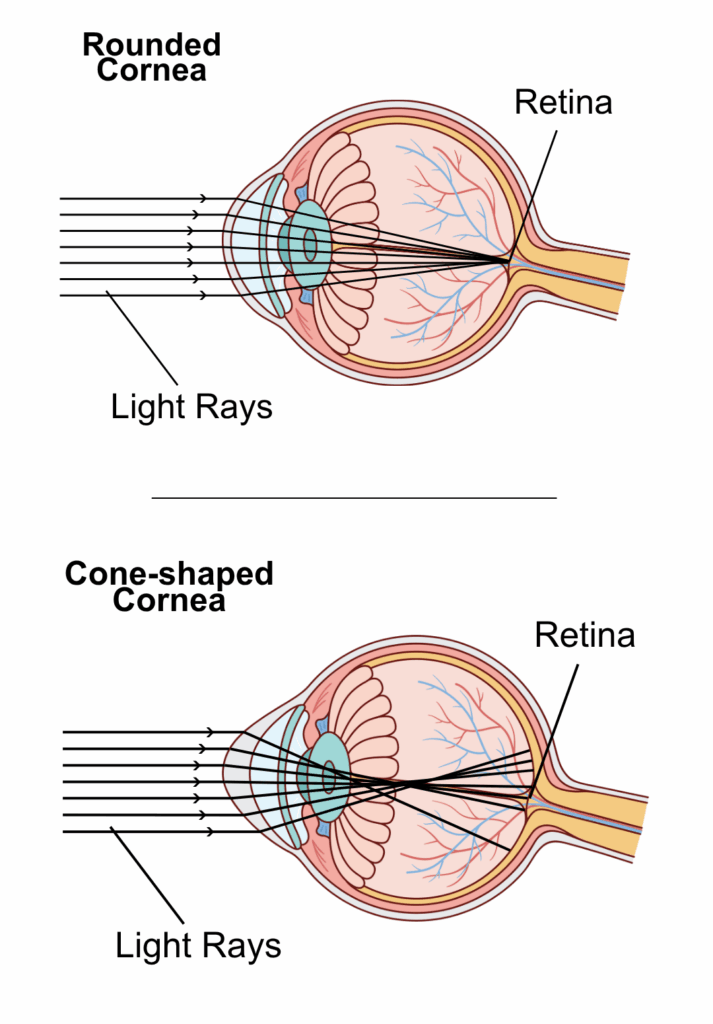Keratoconus: An Overview
Keratoconus (KC) is a progressive eye condition where the cornea, the clear, dome-shaped front of your eye, thins and begins to bulge into a cone-like shape. This distorts your vision.
To learn more about Keratoconus, including expert insights and the latest research, explore our YouTube channel.



Why Keratoconus Causes Distorted Vision
In a healthy eye, the cornea is smooth and dome-shaped, allowing light to bend evenly and focus clearly onto a single point on the retina.
In keratoconus, however, the cornea thins and bulges into an irregular cone shape, which causes light to scatter instead of focusing properly. This scattering creates overlapping or distorted images on the retina, leading to blurred vision, ghosting or double vision, and increased glare or halos around lights, especially at night.
Key Facts about Keratoconus
Keratoconus usually affects both eyes
Usually develops in teens or early twenties
It is a relatively rare condition
It can cause blurred or distorted vision
Not a cause of blindness
Related Topics & Conditions
Acute Hydrops
Abnormal Eye Rubbing
Conjunctivitis
Foreign Bodies and Your Eyes
Acute Hydrops
This is a sudden, painful event where vision becomes misty or milky white. It’s caused by a tear in the inner layer of the cornea. Find more information here.
Abnormal Eye Rubbing
Forceful or frequent eye rubbing can damage the cornea and may contribute to the progression of Keratoconus. Find out more here.
Conjunctivitis
Also known as ‘pink eye,’ this is an inflammation of the conjunctiva. You can read more about it here.
Foreign Bodies and Your Eyes
Because the cornea of a keratoconus eye can be more sensitive, it’s important to know how to handle a foreign body. A foreign body is any particle, such as dust, sand, or debris, that gets into the eye.
While your eyes have a natural defense of tears to wash away these particles, some may get stuck, which can cause irritation, redness, pain, and blurry vision.
What to Do
Do not rub your eye. This can cause more damage.
Flush with water. For a simple foreign body, the best first-aid is to flush the eye with plenty of clean water.
Seek medical help. If the particle is moving at high speed, or if your vision is significantly decreased, seek medical attention immediately.
